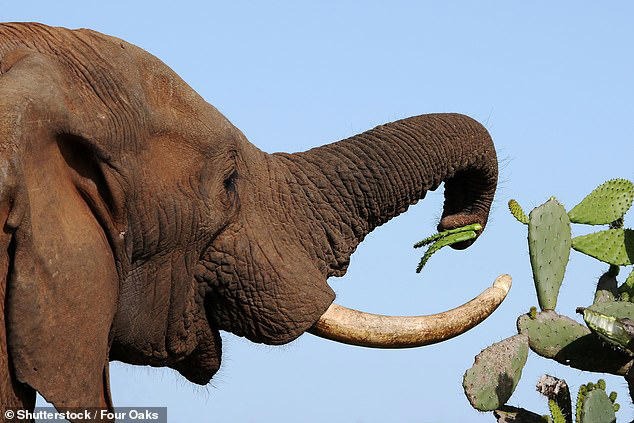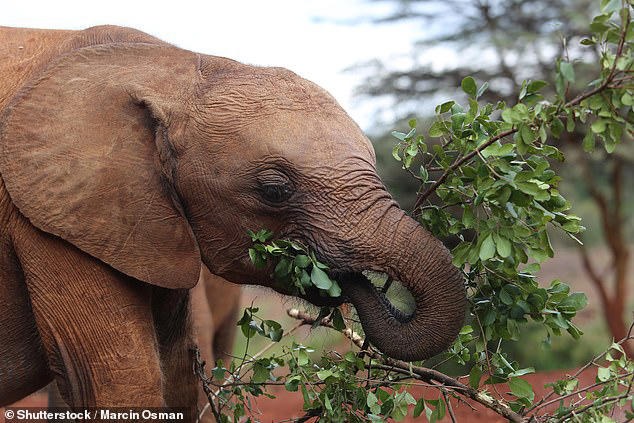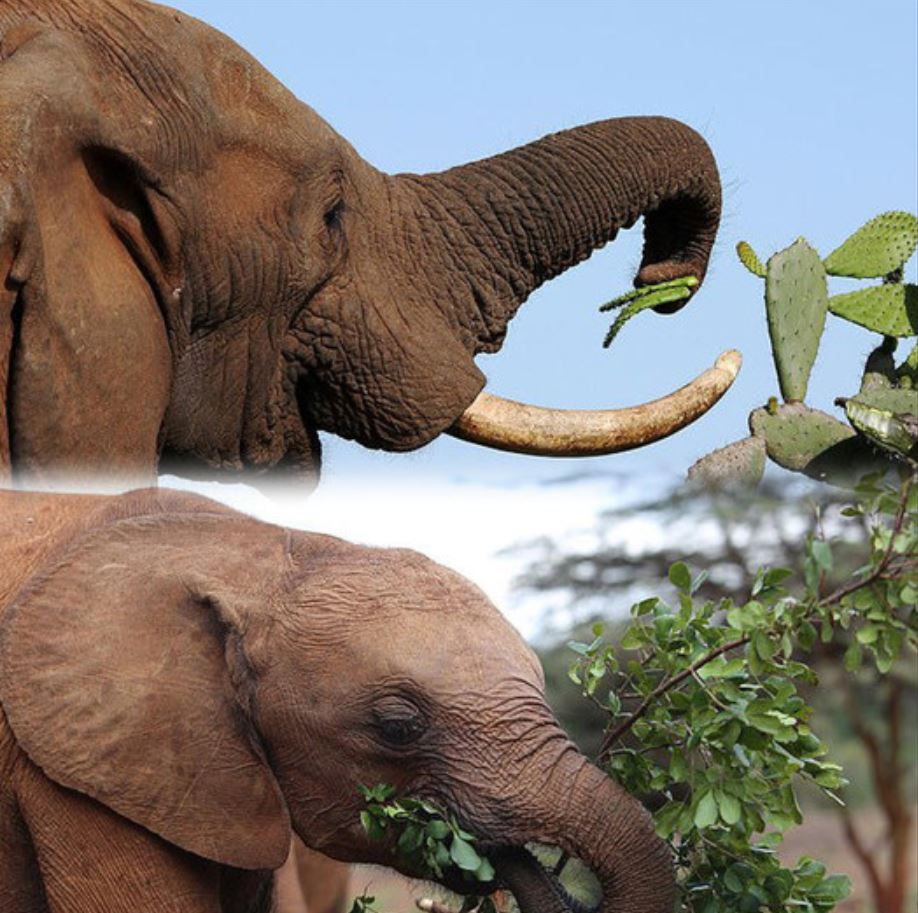It would get rather boring eating the same thing for dinner every day.
And we’re not the only ones who think so – as elephants vary their day-to-day meals too.
Researchers have discovered the animals consume up to 137 different types of plant, and alter their diet based on the weather and their own preferences.
A team from Brown University in the US used DNA metabarcoding to work out exactly what two elephant herds in Kenya eat.
This technique involves analysing biological samples – such as hair or faeces – and matching the extracted DNA fragments to a library of plant DNA ‘barcodes’.

They discovered that dietary differences among individuals were often far greater than had previously been assumed – even among family members that foraged together.
Up to 137 unique plant DNA barcodes were detected in one faecal sample – revealing the true extent of variation in an individual’s diet.
Analysis also confirmed that the animals tend to eat more grass when it rained and other plants when it was dry.
The researchers said the elephants vary their diets based not only on what’s available but also their preferences and physiological needs.
A pregnant elephant, for example, may have different cravings and requirements at various times in her pregnancy.
They explained that elephants may forage together in groups since they don’t always eat exactly the same plants at the same time, ensuring there is enough to go around.

Author Tyler Kartzinel said: ‘We have never really had a clear picture of what all of these charismatic large mammals actually eat in nature.
‘The reason is that these animals are difficult and dangerous to observe from up-close, they move long distances, they feed at night and in thick bush and a lot of the plants they feed on a quite small.
‘Wildlife populations need access to diverse dietary resources to prosper. Each elephant needs variety, a little bit of spice – not literally in their food, but in the dietary habits.
‘It’s really important for conservationists to keep in mind that when animals don’t get enough of the foods that they need they may survive, but they may not prosper.
‘By better understanding what each individual eats, we can better manage iconic species like elephants, rhinos and bison to ensure their populations can grow in sustainable ways.’
The findings were published in the journal Royal Society Open Science.

